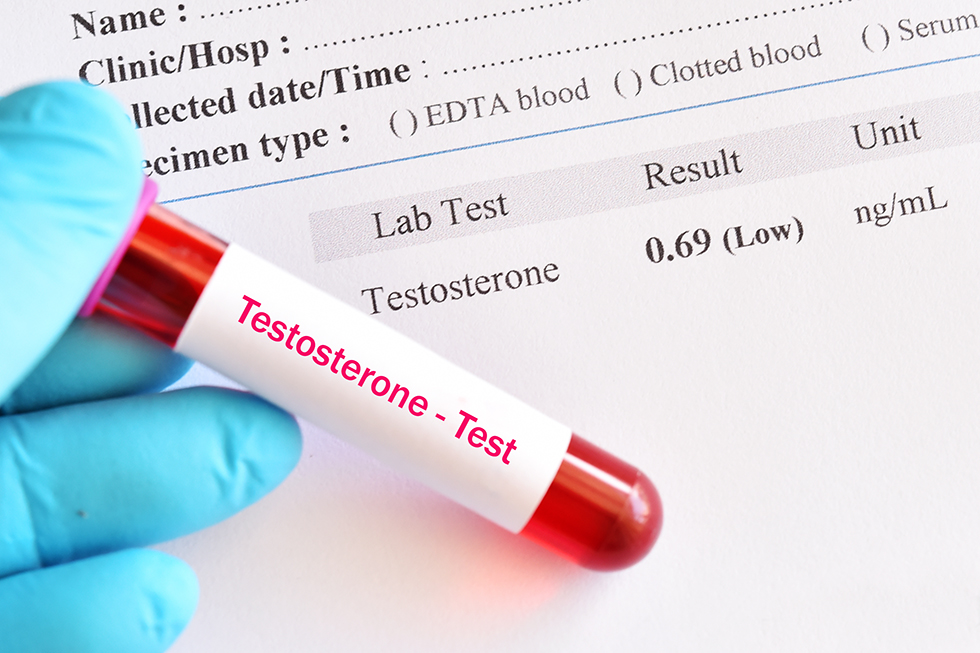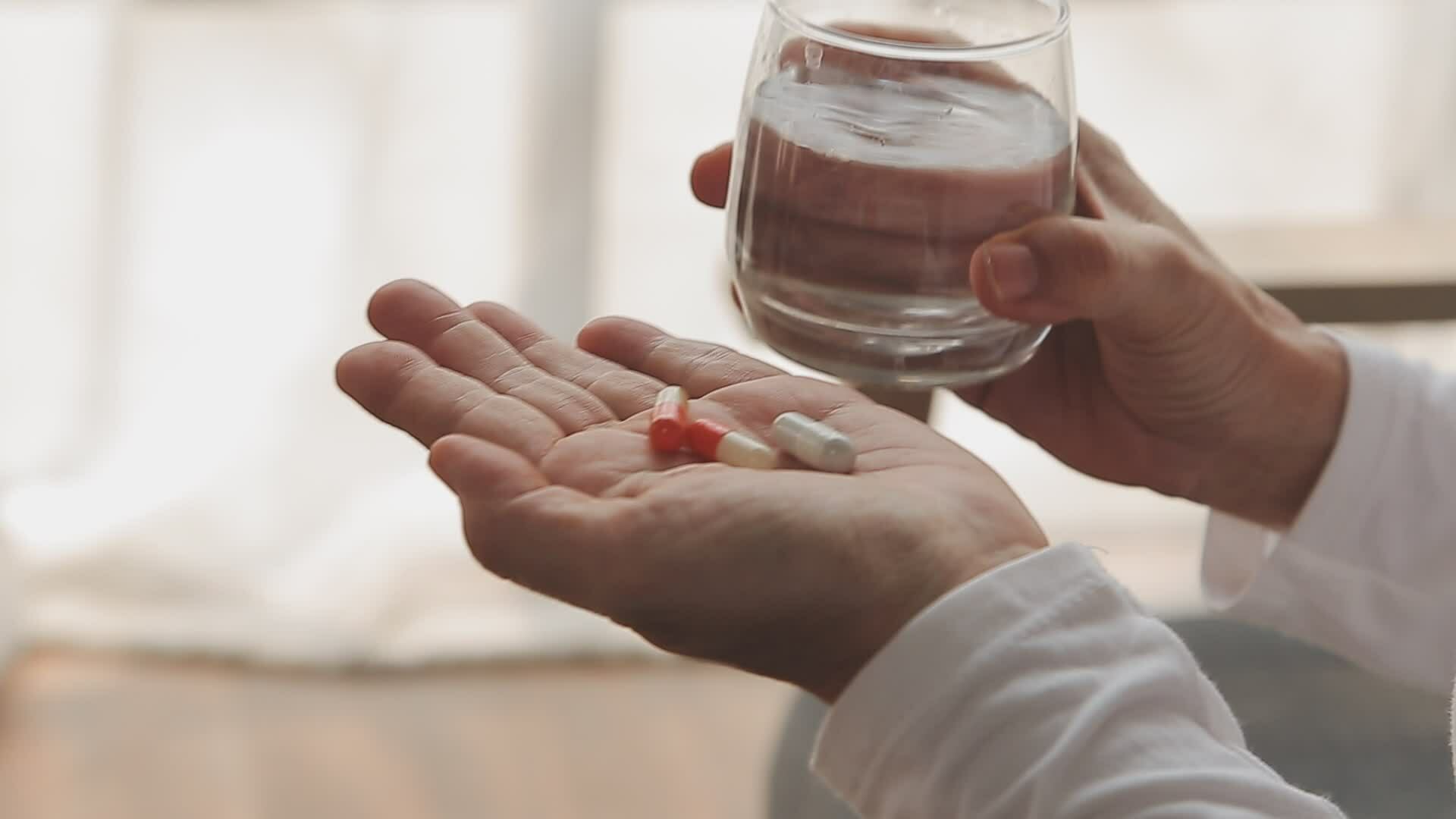Blog >The Role of Hormones in Premature Ejaculation: Exploring the Connection
The Role of Hormones in Premature Ejaculation: Exploring the Connection

Premature Ejaculation (PE) is a prevalent sexual dysfunction that affects men all over the world. It is the inability to hold onto the urge to ejaculate long enough during sexual intercourse to satisfy both partners. Various factors contribute to PE, including psychological, behavioural, and relationship issues. Hormones also play an important role in regulating the male reproductive system and are linked to premature ejaculation. In this blog, we are going to discuss the relationship between premature ejaculation and hormones and how to treat it.
Role of Hormones in Premature Ejaculation

Hormonal regulation of ejaculation is complex and involves a delicate balance between various hormones, neurotransmitters, and their receptors. The following are the various hormones and neurotransmitters and their role in ejaculation:
Dopamine and Its Effect on Ejaculation Control
Dopamine, a neurotransmitter (chemical messenger) associated with pleasure and reward, plays a vital role in premature ejaculation. It modulates the ejaculatory reflex and sexual arousal. Imbalances in dopamine levels may contribute to PE by affecting the neural pathways involved in ejaculatory control. Enhanced dopamine activity is associated with heightened sexual excitement, potentially leading to quicker ejaculation.
Acetylcholine and Its Role in Prolonging Sexual Activity
Acetylcholine, a neurotransmitter, plays a pivotal role in the ejaculatory process. It facilitates communication between nerve cells, contributing to the coordination of muscle contractions during ejaculation. An optimal balance of acetylcholine is essential for controlled timing in the ejaculatory reflex. Imbalances or dysregulation of acetylcholine levels may disrupt this coordination, contributing to premature ejaculation.
Testosterone and Sexual Function
Testosterone, the primary male sex hormone, is essential for overall sexual health. It influences libido, arousal, and the ejaculatory process. Low testosterone levels may lead to diminished sexual desire and compromised ejaculatory control, potentially contributing to premature ejaculation. Conversely, an excess of testosterone can also disrupt the delicate hormonal balance, highlighting the importance of maintaining optimal testosterone levels for healthy sexual function.
Serotonin’s Influence on Ejaculation
Serotonin, a neurotransmitter, is involved in the regulation of ejaculation. Several studies have shown that an imbalance in serotonin levels can impact ejaculatory control. Selective serotonin reuptake inhibitors (SSRIs), the commonly prescribed medications for depression have been shown to delay ejaculation, supporting the belief that serotonin plays a vital role in modulating the timing of ejaculation.
Prolactin and Sexual Dysfunction
Prolactin, primarily associated with lactation, also influences male sexual function. Elevated levels of prolactin have been linked to sexual dysfunction, including premature ejaculation. Prolactin inhibits the secretion of gonadotropin-releasing hormone (GnRH), thereby affecting the release of luteinizing hormone (LH) and testosterone.
Thyroid Hormones and Ejaculatory Control
The thyroid, a key regulator of metabolic processes, also plays a role in reproductive health. Both hyperthyroidism and hypothyroidism can impact sexual function, affecting the timing of ejaculation. Thyroid hormones influence testosterone levels, and a disruption in this hormonal interplay may contribute to premature ejaculation.
Cortisol and Stress-Related Ejaculation Issues
Cortisol, a stress hormone, may also influence premature ejaculation. Chronic stress can elevate cortisol levels, leading to a range of physiological responses that may impact sexual function. Increased cortisol levels have been associated with anxiety and lower the production of testosterone which is the primary hormone responsible for sex drive in men, thereby, causing ejaculation issues.
Treatment for Premature Ejaculation

Treatment options for premature ejaculation may vary from one individual to another and involve a combination of behavioural, psychological, and medical approaches. Behavioural techniques, such as the start-stop method and the squeeze technique, focus on improving ejaculatory control through self-regulation during sexual activity.
Psychological interventions, such as counselling or sex therapy, can help address factors contributing to PE. These may include anxiety, performance pressure, or relationship issues. Cognitive-behavioural therapy (CBT) is often effective in modifying negative thought patterns associated with premature ejaculation.
Pharmacological interventions for premature ejaculation include topical anaesthetics, oral medications, and off-label use of certain antidepressants. Topical anaesthetic creams/sprays aim to desensitize the penis and delay ejaculation. Selective serotonin reuptake inhibitors (SSRIs), are effective in delaying ejaculation and are also prescribed in some cases.
Ultimately, the choice of treatment depends on the underlying causes and individual preferences. A holistic approach involving a healthcare professional’s guidance is recommended to tailor the treatment to specific needs and circumstances of the individual experiencing premature ejaculation.
In conclusion, hormones play a key role in the complex interplay of factors contributing to premature ejaculation. Recognizing the hormonal imbalance of premature ejaculation is essential for developing targeted interventions. A holistic approach that addresses both psychological and physiological aspects is important in providing effective treatments for individuals experiencing premature ejaculation.
AndroNeo ,in Bangalore, India, provides exceptional care for both premature ejaculation and fertility concerns. Renowned for their expertise, AndroNeo’s healthcare professionals employ latest treatments and personalized approaches to address these issues. With a commitment to patient well-being, AndroNeo Hospitals stands as a premier medical institution for individuals seeking comprehensive and top-notch care for premature ejaculation and fertility challenges.
Recent Post
- Penile Implant Surgery: A Permanent Solution to Erectile Dysfunction from the expert Andrologist in Bangalore
- Testosterone – why is it so important
- Bengaluru’s Leading Expert in Andrology (Male Fertility and Sexual Health) and Prosthetic Urology – Dr Pramod Krishnappa
- Varicocele – The Hidden Cause of Male Infertility
- No Sperm and Its Link to Genetic Factors: An Exploratory Guide
Related Post
Penile Implant Surgery: A Permanent Solution to Erectile Dysfunction from the expert Andrologist in Bangalore
Penile Implant Surgery: A Permanent Solution to Erectile Dysfunction from the expert Andrologist in Bangalore Living with erectile dysfunction (ED) is not only a physical
Testosterone – why is it so important
Testosterone – why is it so important Testosterone hormone is one of the most important hormones in our body, it is primarily a male hormone
Bengaluru’s Leading Expert in Andrology (Male Fertility and Sexual Health) and Prosthetic Urology – Dr Pramod Krishnappa
Bengaluru’s Leading Expert in Andrology (Male Fertility and Sexual Health) and Prosthetic Urology – Dr Pramod Krishnappa Overview Dr. Pramod Krishnappa is an exceptional Andrology
Varicocele – The Hidden Cause of Male Infertility
Varicocele_ The Hidden Cause of Male Infertility Infertility in men is a problem for millions of couples around the world, and one of the common
No Sperm and Its Link to Genetic Factors: An Exploratory Guide
No Sperm and Its Link to Genetic Factors: An Exploratory Guide Azoospermia, a leading cause of male infertility, occurs when a man’s ejaculate (semen) does
Penile Implant For Erectile Dysfunction: Preparation, During & After Surgery
Penile Implant For Erectile Dysfunction: Preparation, During & After Surgery A penile implant, also called a penile prosthesis, is a treatment method used to treat
Author: Dr. Pramod Krishnappa
